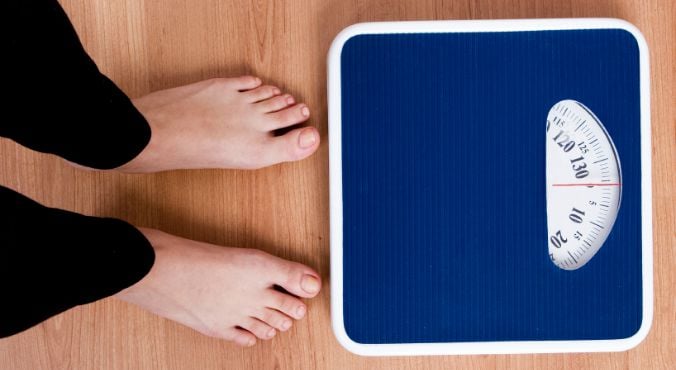
Image: iStock.
Even if you think you have a good idea of how much you weigh, there’s no way to tell exactly what number will appear when you step on a set of bathroom scales.
Those digits can oscillate wildly with no obvious reason, which makes things incredibly frustrating (infuriating, even) if you’re trying to keep an eye on your weight. If it makes you feel any better, you’re not the only one whose scales seem to have a mind of their own.
Guardian writer Martin Robbins has also noticed this pattern and decided to investigate the possible reasons behind this variance by weighing himself every hour on the hour over a long weekend.
Robbins also weighed every gram of food and drink he consumed over the almost 90-hour period, measured the amount of urine passed, and noted down how much exercise he did, to determine how or whether these factors influenced his hourly weight fluctuations. (Post continues after gallery.)
The foods nutrition experts refuse to eat
Interestingly, while Robbins consumed 14.86kgs of food and drink, he was 1.86kg lighter by the end of the weekend that he was at the beginning. Of that sum figure, 9.2kg of consumed mass was lost through urine and bowel movements, and Robbins lost one kilogram of sweat over two running sessions, but he was perplexed by what happened to the rest of it.
“On average, I lost 69 grams every single hour that couldn’t be explained by anything I’d measured. Over the whole weekend, that added up to nearly six kilos of unexplained weight loss, 1.65kgs every 24 hours,” he writes.
